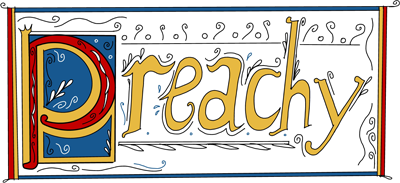Poem: my god is a flash of light
- My first memory of God is one I come back to often. I remember through the filter of an evening, summered and humid, creeping in my family’s tiny American apartment. I don’t remember how many birthdays had disappointed me yet, but my hands were still small, stretching across a cheap Casio stretched across my lap. The room was seafoam and my body was lone, exploring expression through colorful sound, conjuring something, conjuring nothing, asking the air to become a shape.
- Before my mom began her hellfire propaganda, I believed in God, every day and easily. My enchantment was not about rules. But eventually it was appropriated, bent, and then that’s all it was. Thou shall not, thou shalt now, thou shall never. The cosmos guided me towards my own sense of light. Humankind taught me to fear it.
- Like a craving for something saccharine, the desire I embodied for the divine was instinctual. Animal-deep, frictionless. I didn’t understand this spiritual inclination. The meaning didn’t really matter.
- Some historians say that there are over 6,000 Yoruba deities. During my childhood, I didn’t learn about any of them. My Yoruba mother believes they’re evil. My Yoruba father just believes in flashy cars.
- A recent spring ago, my mom casually told me and my brothers that one of our ancestors is white. A British man who lived in Nigeria for the purpose of Protestant colonization, otherwise known as missionary work.
“Your great-great-grandmother had a few of his children,” my mother says.
“Did this man have slaves?” I ask.
She exhales. “Well, I don’t know. But he brought the gospel. He brought us god. He brought us god.”
“Well, what if we already had God? Maybe not the god of the gospel, but our own expression.” I didn’t say this, but I wish I had.
- Oshun is a Yoruba goddess. The story goes that Oshun was created to fill the earth’s void of sweetness. The story goes that Oshun eats cinnamon sticks and adores amber. Oshun’s skin is brown in that golden way, flickers like a flame.
- Sometimes I accidentally sing evangelical hymns. Sometimes I do not stop myself. An old church friend texts me, asks if I miss Jesus. I say no easily. This is true. I don’t miss Jesus, but I do miss certainty.
- Every day, my mother kneels in her shoe closet and thanks her God for unbelievable astonishment which is to say her life and mine. I used to think she was dramatic and oppressed. Now I admire her commitment. She texts me Bible verses every week. I never respond.
- Every spiritual practice seems to be an appropriation of something. Nothing is pure. Nothing feels like mine. Oshun’s skin is brown, but I cannot dismiss my Americanness, which is to say, I cannot dismiss my tendency to take things that don’t belong to me, post them somewhere, water the sacred down to a trend.
- I want to talk to my God, but I don’t know what to name them.
- I want to be sweeter for the spirit , so I drench my fingertips in honey and say a prayer. I am shy to say aloud the consonants and vowels that make up her name, so I hum them instead. The blend of breath and vibration brings me closer to my mother, to my grandmother, to my great grandmother, to my great-great-grandmother, to myself.
- My god evades time and space and matter. My god laughs at all my jokes. My god doesn’t think I’m very funny. My god loves my mother and my grandmother and my great grandmother and my great-great-grandmother. My god loves me. My god heals our bloodline thoroughly with chamomile and good therapists. My god spins the multiverse, surfs atop the void. Genderless, gentle, gleaming.
- My god is a flash of light.
This piece started as a flash essay, but as I reckoned with my spirituality—the journey and all the complicated feelings—a poetic structure naturally unfolded. There is no endpoint to unraveling and understanding anything, especially spiritual matters. I think this prose-poem form envelopes the loops and fluctuations that surround belief, unbelief, doubt, hope, and yearning. —Loré Yessuff
Loré Yessuff writes poems and essays about the intersection of intimacy and identity. Her work has appeared in the New York Times’s Modern Love column, Man Repeller, Vox, Voicemail Poems, and elsewhere. She facilitates a monthly workshop called Poembutter, which is aimed at making poetry fun and accessible. Currently, she’s obsessed with haikus, jasmine tea, and her homemade sautéed kale recipe.
